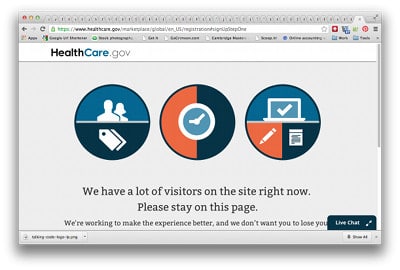The virtual currency Bitcoin has soared in value against the U.S. dollar in recent months, topping out a staggering $913 USD to 1 Bitcoin (or BTC) as of late Tuesday. The currency had many ups and downs since it was launched in January 2009. But its main attraction, all along, has been anonymity. Unlike any other online payment system, Bitcoin transactions – like cash transactions – cannot be traced back to specific individuals. Also like cash, they cannot be reversed. Both those factors give Bitcoin users the confidence that their online purchasing activity – whether computer hardware or contraband will remain private. But a group of researchers at two U.S. universities have released a paper that suggests reports of Bitcoin’s anonymity may (to paraphrase Twain) “be greatly exaggerated.” Specifically: the researchers found that, by culling a variety of open source data using public data from the Bitcoin Peer to Peer network and from […]
online shopping
Verizon: New Cloud Encryption Service Will Secure IoT Devices
Identity is one of the biggest challenges facing companies that are deploying products for the “Internet of Things,” as well as traditional enterprises that find IoT technologies of all types knocking at the door. The question, in short, is “how do I know that this device is legitimate, and ties back to an identity that I trust with access to my network resources and data? Of course, identity management has always been an aching problem in the enterprise space. The problem with the IoT is scale – given the sheer size of the IoT (30 billion connected devices by 2020), you can add a few “zeros” onto the number of devices that could, potentially, be seeking access to your network at any time. [Related read: Identity Management’s Next Frontier: The Interstate] It makes sense that, in a distributed environment like that, the cloud may be the best place to address […]
Hack Uses Phone’s Camera and Mic To Best Anti-Keylogger
Smart phones these days are bristling with sensors. Forget about the camera and microphone – there are accelerometers, Global Positioning System components, not to mention Bluetooth and NFC transmitters. All those remote sensors enable all kinds of cool features – from finding the nearest Starbucks to mobile payments. But they also pose a risk to the privacy of the phone’s owner – as malicious actors (and the occasional national government) look for ways to turn cameras and other sensors into powerful, cheap and convenient spying tools. Now researchers at The University of Cambridge have demonstrated one possible, new attack type: harnessing the built-in video camera and microphone on Android devices to spy on an owner’s movements and guess his or her password. The technique could be a way for cyber criminals to defeat anti-keylogging technology like secure “soft” keyboards used to enter banking PINs and other sensitive information. The work […]
Beyond ‘Likes’: CrowdOptic Uses Google Glass To Map Your Focus
Sometimes a technology becomes so ubiquitous and obviously useful that we (humans) cease to think critically about its shortcomings. As an illustration of this, imagine yourself teleported back in time to the island of Manhattan in 1900. You’d find a bustling metropolis, for sure. You might look around and notice that the people dressed differently, or that the skyline was different from what we’re used to. But I bet one of the things you’d notice first was the stench emanating from the piles of horse manure and puddles of urine. As this (great) post at The Daily Kos points out, there were 200,000 horses working in New York City by 1900. Those horses were dropping 4 million pounds of manure and 40,000 gallons of urine on city streets every day. “The ubiquitous street sweepers could only pile the stuff up in vacant lots, occasionally to the height of sixty feet. To […]
Health Exchanges Need A Fail Whale
In a blog post on Veracode’s blog today, I write about the problems encountered at government-run online health exchanges that were intended to connect millions to private insurance plans under the Affordable Care Act. The exchanges opened to the public on Tuesday, and they got off to a rocky start, with reports of web sites paralyzed as millions of uninsured Americans logged on to sign up for subsidized health insurance. In some cases, the problems appear to have been caused by “external factors.” New York State’s online health exchange was felled by the weight of more than 10 million requests of dubious origin, The New York Post reported. But other exchanges, including Healthcare.gov the federal government’s main health insurance storefront, which is used by residents or more than half of the states, were victims of their own success: overwhelmed when the doors swung open and millions of eager customers poured […]





